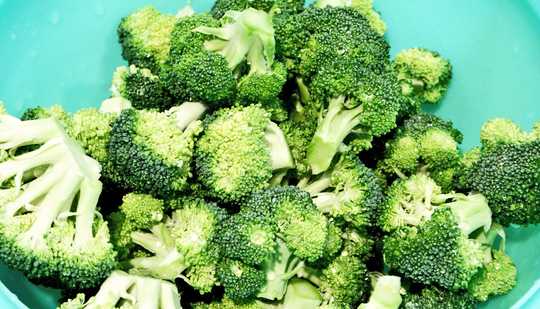
Researchers have mapped the crystal structure of a key protein that makes the metabolites responsible for the bitter taste in Brassica vegetables like mustards, broccolis, and cabbages.
Vegetables in the genus Brassica share a distinct and bitter taste. Some consider the flavor of cruciferous plants their strongest attribute. But even in India and China, where these “brassicas” have been cultivated for more than 4,000 years, scientists have sought to tone down the chemical compounds responsible for their pungent flavor. Turns out, the same compounds that make them bitter also make them toxic at some levels.
The new study is the first snapshot of how the protein evolved and came to churn out such diverse byproducts in this agriculturally significant group of plants. The results could be used along with ongoing breeding strategies to manipulate crop plants for nutritional and taste benefits.
Brassicas fight back
“All of the brassicas—be it Indian mustard, Arabidopsis, broccoli, or brussel sprouts—they all make these pungent, sulphur-smelling compounds, the glucosinolates,” says Joseph Jez, professor of biology at Washington University in St. Louis. The compounds have long been recognized as a natural defense against pests.
Get The Latest By Email
“Plants need to fight back,” Jez says. “They can’t really do anything, but they can make stuff.”
“There’s different profiles of glucosinolates in different plants,” he says. “The question has always been if you could modify their patterns to make something new. If insects are eating your plants, could you change the profile and get something that could prevent crop loss?”
But there are a daunting number of glucosinolates: almost 130 different kinds recognized within the genus Brassica. Each plant species within the genus makes a “collection” of several different kinds of glucosinolates—its own flavor mix—all of which are secondary metabolites of a particular protein.
Researchers have known about the central role of this protein for decades. But prior to this study, no one had ever been able to complete the x-ray crystallography necessary to map it in detail.
Tastier crops?
The new work, co-led by Roshan Kumar, a postdoctoral fellow in the Jez laboratory, uses genetics, biochemistry, and structural biology to help unravel the molecular basis for the evolution and diversification of glucosinolates.
“Glucosinolates are derived from amino acids,” Kumar says. “Gene elongation is one of the important steps that provides most of the diversity in the glucosinolate profiles across all of the brassicas. It decides which type of glucosinolates (the plant) is going to form.”
The insight gained in the new study is important step toward mustering a milder mustard, or building a bitter-free broccoli.
But will it help us to eat our greens?
Maybe. Mostly researchers are interested in the potential for modifying glucosinolates in seeds, not in the stems or leafy parts of Brassica plants, Kumar says.
The major oilseed crop Brassica juncea and related rapeseeds are used to make cooking oil in temperate and subtropical areas of the world. Plant breeders have sought to adjust the levels of glucosinolates in these crops so that the protein-rich seed cake leftovers can be used as a feed supplement for cattle and poultry.
“If you decrease glucosinolates from all over the plant, it becomes susceptible to pests and pathogens,” Kumar says. “That is why there is a need for smart engineering of glucosinolates.”
The study appears in the journal The Plant Cell. Additional researchers contributing to the work are from the National Institute of Plant Genome Research in New Delhi, India and the the Max Planck Institute for Chemical Ecology in Jena, Germany.
Source: Washington University in St. Louis
books_food







